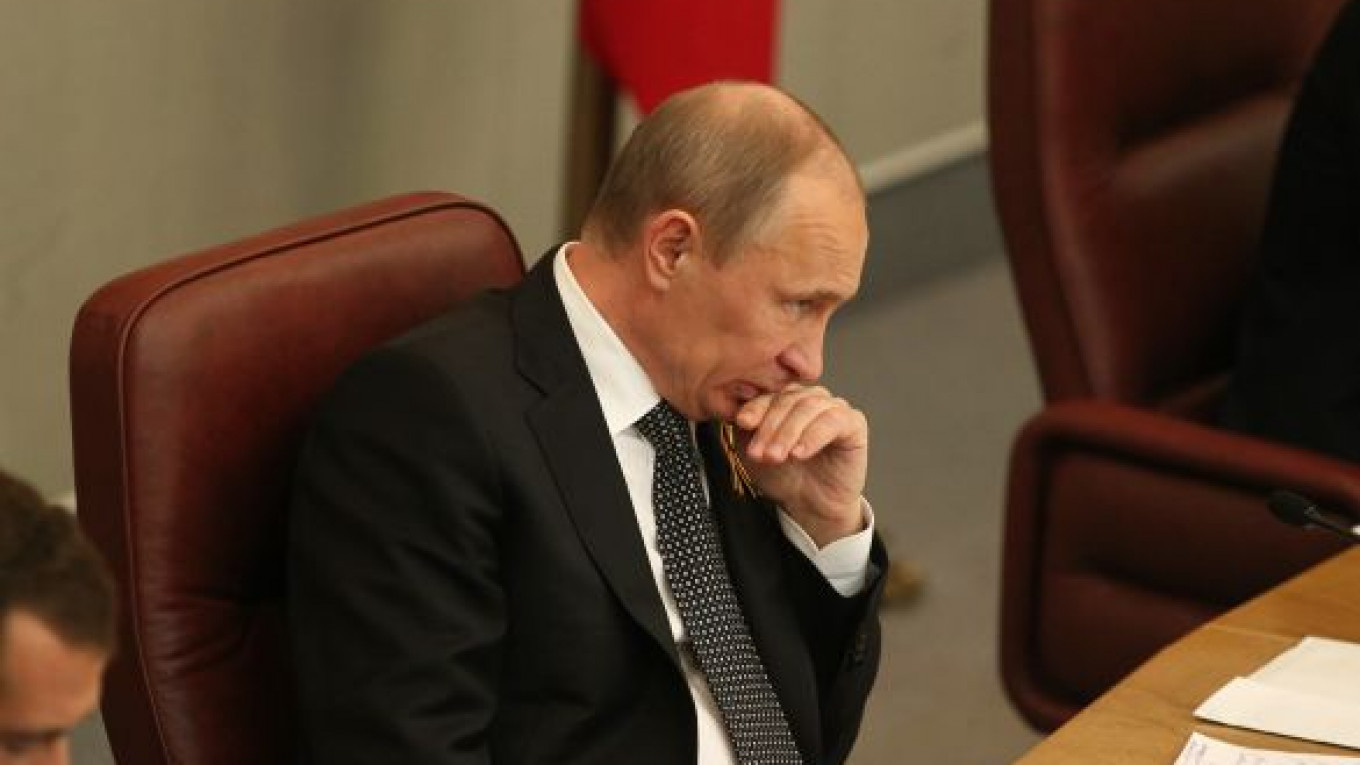Russians’ opinion of President Vladimir Putin has soured over the summer, with approval ratings and other indicators dropping since May, according to a Levada Center poll released on Friday.
Forty-eight percent of respondents in an August nationwide poll said they had a positive opinion of the long-serving leader, down from 60 percent in May, when Putin resumed the presidency.
Meanwhile, Putin’s approval rating dipped from 57 percent in May to 52 percent in August, according to the poll, while his disapproval rating remained steady at 24 percent.
Putin’s approval ratings have historically been high by Western standards, a fact supporters have used to justify his continued rule 12 years after he first became president.
For instance, he enjoyed a 77 percent approval rating in May 2008 following eight years as president, according to a Levada Center poll taken the month before.
The results of the latest poll suggested that Russians increasingly see Putin as ineffectual and remain rather skeptical about his ability to produce positive change.
Fifty-three percent of respondents said Putin had a “very strong” or “strong” influence on events in Russia, down from 66 percent in May and the lowest result since October 2006, and 56 percent said Russians were “tired of waiting” for positive change from Putin.
His approval index, the difference between positive and negative approval ratings, stood at 35 in July, having fallen steadily since its all-time high, 78, in September 2008, the year Putin assumed the premiership, a position he held until earlier this year.
But the nonsystemic opposition, which has staged a series of massive antigovernment protests since December, doesn’t appear to be gaining much ground, according to recent Levada polls.
Forty-two percent of respondents in a July poll supported the protests, compared with 44 percent in December, when allegations of fraud at Dec. 4 State Duma elections sparked a firestorm of antigovernment activism that new restrictions on illegal protests and defamation have not extinguished.
But perhaps most tellingly, only 5 percent of respondents in that poll said they were “very likely” to take part in a local rally for free and fair elections.
The Aug. 10-13 poll of 1,601 adults in 45 regions had a margin of error of 3.4 percent.
Related articles:
A Message from The Moscow Times:
Dear readers,
We are facing unprecedented challenges. Russia's Prosecutor General's Office has designated The Moscow Times as an "undesirable" organization, criminalizing our work and putting our staff at risk of prosecution. This follows our earlier unjust labeling as a "foreign agent."
These actions are direct attempts to silence independent journalism in Russia. The authorities claim our work "discredits the decisions of the Russian leadership." We see things differently: we strive to provide accurate, unbiased reporting on Russia.
We, the journalists of The Moscow Times, refuse to be silenced. But to continue our work, we need your help.
Your support, no matter how small, makes a world of difference. If you can, please support us monthly starting from just $2. It's quick to set up, and every contribution makes a significant impact.
By supporting The Moscow Times, you're defending open, independent journalism in the face of repression. Thank you for standing with us.
Remind me later.






